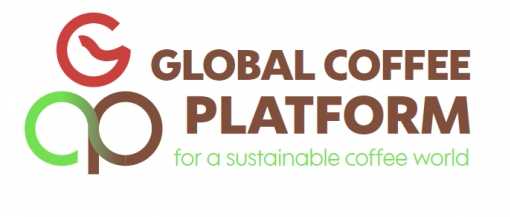GENÈVE, Switzerland – In a move to advance sector transparency and the purchase of sustainable coffee, GCP has expanded its GCP Collective Reporting on Sustainable Coffee Purchases by adding two additional sustainability schemes and is now inviting more roasters and retailers to get involved in the next round of reporting.
Two new schemes – Enveritas Green and LIFT by Mercon – bring the number of schemes recognised by GCP to eleven. These schemes are eligible to be included in the GCP Collective Reporting on Sustainable Coffee Purchases. Roasters and retailers, including signatories of the ICO London Declaration, are now invited to participate in the next round of GCP Collective Reporting, which kicks off in March 2022.
Giacomo Celi, Sustainability Director of the Mercon Coffee Group, said:
“In line with our purpose of building a better coffee world, our LIFT service delivery platform enables coffee producers to improve not only their production process, but also their quality of life. The GCP recognition of LIFT by Mercon as 2nd party scheme equivalent to the Baseline Coffee Code is an important initiative to create a shared sustainable production framework, which is aligned with our strategic market services to farmers. We continue valuing the best partnerships under our LIFT by Mercon platform.”
David Browning, CEO, Enveritas, said:
“We are delighted to receive GCP recognition of Enveritas Green as 2nd party scheme equivalent to the Baseline Coffee Code. Many of the world’s smallholder coffee farmers have traditionally lacked access to sustainability markets due to the cost of verification. This approach provides verification at no cost to farmers, offering a more inclusive path for the coffee industry. We are excited to work with GCP towards a more sustainable coffee future that protects farmer livelihoods, human rights, and the environment for future generations of coffee farmers.”
These sustainability schemes are considered as equivalent under the Equivalence Mechanism 1.2 which includes the Baseline Coffee Code v2.1 (the predecessor of the Coffee Sustainability Reference Code) and Operational Criteria (covering system implementation) and are recognized by GCP as Baseline Coffee Code Equivalent 2nd party.
The Equivalence Mechanism, together with the Code and the GCP Collective Reporting on Sustainable Coffee are connected assets developed by GCP to offer a common language on the foundations for coffee sustainability and promote the supply and demand of coffee produced following at least baseline sustainability principles. Sustainability schemes that meet the sustainability criteria in the Code and the operational criteria in the Equivalence Mechanism are eligible for roasters and retailers to be included in their annual reporting of sustainable coffee purchases.
Following the recent publication of the Coffee Sustainability Reference Code, we are currently revising the Equivalence Mechanism. We invite all interested stakeholders to participate in the Equivalence Mechanism Revision which will run from mid-March to mid-April. The main objective of this revision is to ensure that the Operational Criteria in the EM reflects good practice and user’s expectations of credible schemes.
Once a new version of the Equivalence Mechanism is published, all the sustainability schemes that have been recognized by GCP to be equivalent to the Baseline Coffee Code either 3rd party, or 2nd party will be re-assessed.
About the Equivalence Mechanism
The revision is being guided by the GCP Technical Committee and the Advisory Task Force. It includes actors from all segments of the coffee supply chain, from producers to roasters and supporting organizations like NGOs. The consultation will look at the elements that define a credible sustainability scheme in terms of governance, standard-setting, assurance, data and claims. For this revision GCP is in particular seeking input from organizations that have developed a sustainability scheme, companies that use sustainability schemes for their responsible/sustainable sourcing strategies and actors in the sector who are active in the area of responsible/sustainable sourcing.
The project description can be found here.
What does it mean to be Equivalent 2nd or 3rd party?
For their recognition, GCP assessed the different sustainability schemes against the principles and criteria in the GCP Baseline Coffee Code and the operating practices that schemes should have in place to be considered credible and effective. Depending on their assurance model they are classified as GCP Baseline Coffee Code equivalent 2nd party or 3rd party. 2nd party assurance is often referred to as verification and 3rd party assurance is often referred to as certification. The main difference between these two levels of assurance is that 3rd party assurance includes the oversight of an external body in all assurance activities of the organization that owns the scheme, this includes but goes beyond third-party audits at farm level.
“GCP is delighted to welcome more schemes to Collective Reporting. We’re excited to see the commitment towards advancing sustainability in the coffee sector and the engagement of the sustainability schemes,” says Gelkha Buitrago, GCP Director Programs and Corporate Partnerships.
“We are also very encouraged by the interest in the Equivalence Mechanism revision and look forward to engaging GCP Members and other coffee stakeholders during the consultation period.”










